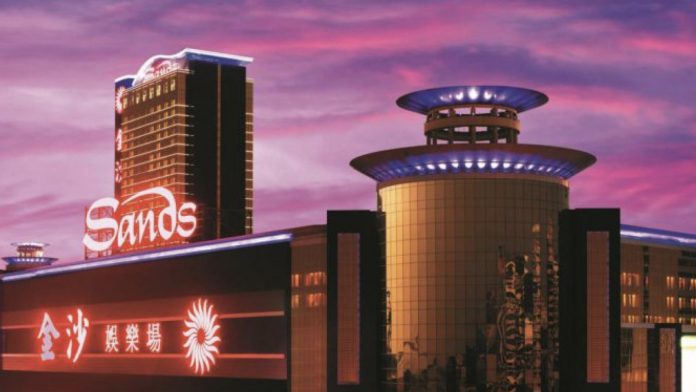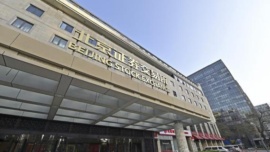Any party partnering with US gaming giant Las Vegas Sands (LVS) or its affiliates would have “very likely” been granted a Macau casino gaming license during the public tender process 20 years ago, had it been Asian American Entertainment Corporation (AAEC), Galaxy Entertainment or others, said two members of the Macau Casino Gaming Commission at the time.
The remarks were made by Maria Nazaré Saias Portela and Eric Ho Hou Yin, who testified today (Wednesday) at the first day of the trial between AAEC, headed by Taiwanese businessman Marshall Hao, and three subsidiaries of LVS, parent firm of local gaming operator Sands China.
The US$12-billion (MOP96-billion) lawsuit shed light on the details of how casino licenses were rewarded in the world’s top gambling enclave two decades earlier, as the city is preparing for a new round of public tender when the six gaming concessions and sub-concessions, including LVS and Galaxy, will expire in June 2022.
The Second Civil Court today heard both AAEC and LVS submitted a bid together for the Macau casino gaming tender in the 2001-2002 period, but later LVS switched its partner to Galaxy, the collaboration that successfully helped the latter to attain licenses here. AAEC alleges the Sands affiliates breached their partnership contract, and seeks damages of around 70 per cent of the profits of the LVS operation in Macau between 2004 and 2022. According to the calculations by news agency Reuters, the figure could be up to US$12 billion.
Portela — a member of the 2001-02 gaming commission formed by eight government officials — confirmed today the affiliates of LVS did not submit bids on their own during the process, but the two bids involving the conglomerate were made under the name of AAEC and Galaxy respectively. The Commission was informed AAEC had formed “a type of partnership” with LVS, which later severed the ties for partnership with Galaxy, she said, who also heads the legal affairs department of the Land, Public Works and Transport Bureau (DSSOPT).
“Similar” bids
Comparing the two bids submitted by AAEC and Galaxy, she testified they were “similar” given the involvement of LVS for management and operation. The Commission believed LVS could bring the gaming model of the Las Vegas Strip to Macau, including mega resorts and MICE facilities, she added.
“In consideration of the image [of Macau] and economic diversifications, any entities partnering with Venetian [LVS] would have a higher chance of getting the license at the time, as [LVS] had abundant experiences in resort management in the Las Vegas Strip, which could help change the structure of Macau gaming,” Portela testified.
But she emphasised: “This did not mean [the Commission] completely prioritised [LVS] but any party involving [LVS] had advantages.”
Ho, who was the secretary for the 2001-02 gaming commission, made similar remarks. “It is correct to say the Galaxy bid was selected mostly because of [LVS] as Galaxy had no experiences in gaming [at the time] while [LVS] had,” he said.
“What Macau needed at the time was to enrich its tourism offerings to attract more travellers, thus spiking the economic recovery,” Ho said, who was an official at the Macau Trade and Investment Promotion Institute (IPIM) during the tendering process but later worked at the Macau operation of LVS between 2003 and 2008. “Whether it was me or other members of the Commission, we thought [LVS] had a lot of expertise in the fields of resorts, MICE and others,” he added.
“Shocked”
The LVS vs AAEC lawsuit was first launched in the US in 2007 but it was later dismissed due to statute of limitations and procedural reasons, before lodging in Macau in 2012. AAEC is represented by the legal team led by Jorge Menezes in the Macau case, while LVS and its affiliates — namely, LVS (Nevada) International Holding Inc; Las Vegas Sands LLC; and Venetian Casino Resort, LLC — are represented by Luis Cavaleiro de Ferreira.
Both sides also disputed today the timeline of the fallout. The 2001-02 Gaming Commission, including then secretary for economy and finance Francis Tam Pak Yuen, was only aware that the two firms had ceased cooperation after receiving a letter dated 1 February 2002 from an affiliate of LVS, the two gaming commission members said. The letter indicated LVS would work with Galaxy for the public tender from that moment onwards, as the intention of cooperation between LVS and AAEC expired on 15 January 2002, the court was told.
“We were shocked they parted ways,” Ho said, adding the Commission also received another letter from AAEC within the same time frame that it would work with another firm for the bid.
But the court today did not hear why AAEC and LVS had severed ties amid the public tender process.
The case has faced delays as the Covid-19 pandemic has made it impossible for some of the witnesses and representatives of the companies abroad to attend the hearings due to travel restrictions. Seng Yoi Man, the presiding judge for the case, has not yet decided today how the witnesses abroad could testify for the lawsuit.
The trial will continue tomorrow afternoon (Thursday) with Manuel Joaquim das Neves, former director of Gaming Inspection and Coordination Bureau (DICJ) who was also a member of the 2001-02 gaming commission, expected to take the witness stand.






















